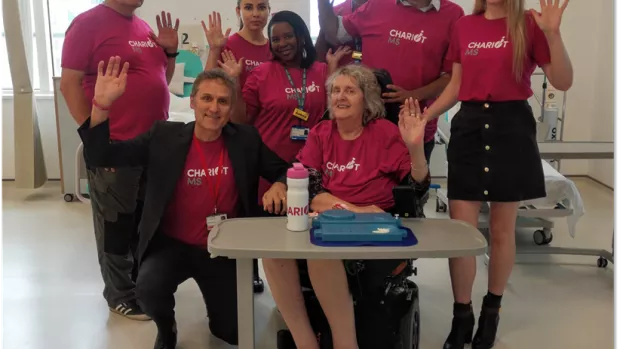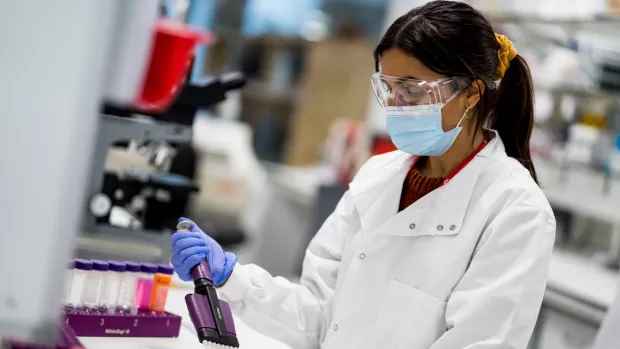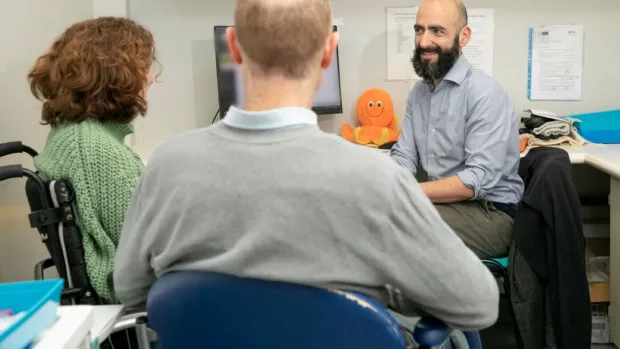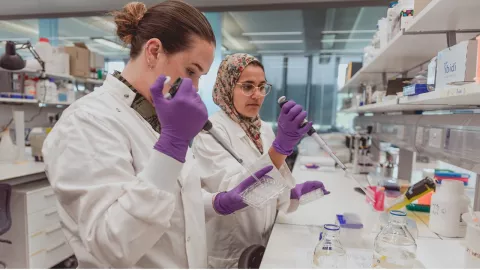
Research Round-up 2023
Find out what happened in the world of MS research in 2023.
This year marked our 70 year anniversary.
In 1953, our founders Richard and Mary Cave set up the MS Society as they were frustrated at the lack of treatments and support available for Mary's MS. And in 1959, we funded our first research project.
With your help, we've been funding research towards our vision of a world without MS ever since. And 2023 was no different.

New findings from the lab
This year, researchers discovered more about the cells of the brain that are important in MS.
A team in Edinburgh have been exploring the star-shaped brain cells, astrocytes, for years. And in 2023 they found astrocytes could help myelin repair if certain properties are boosted.
Another team also in Edinburgh found myelin-making cells are not just different between people. They’re different even within the same person, depending on their location in the brain and spinal cord.
These findings point research towards new ways to treat MS. Some drugs might be more effective for some cells than for others. So future clinical trials could be designed with this in mind.
Clinical trials for progressive MS
This year has been a landmark for clinical trials for progressive MS. Our new mega-trial Octopus started recruitment and now more than 2000 people have registered their interest.
REFUEL-MS also started recruitment. This fatigue management programme is for everyone. And because it’s online, you can take part from home.
The ChariotMS trial team recruited their 100th participant. ChariotMS is for people with advanced MS across the UK and has no upper age limit.
Recruitment for all these trials will continue in 2024.

Making research accessible for everyone
We know equality, diversity and inclusion (EDI) is the key to good research. So, this year, we announced our EDI Action Plan Progress Report. This highlights the work we’ve done around EDI in the last year and what we hope to do next.
View our EDI Action Plan Progress Report as a PDF
We hosted events in collaboration with Parkinson’s UK and Alzheimer’s Society that aimed to reach different communities, especially those from minoritised backgrounds. And we launched a new project focused on improving MS care for people from minoritised ethnic backgrounds.
This year the world’s largest MS research conference, ECTRIMS highlighted EDI, was a hot topic. We want to join researchers in making sure MS research is accessible for everyone.
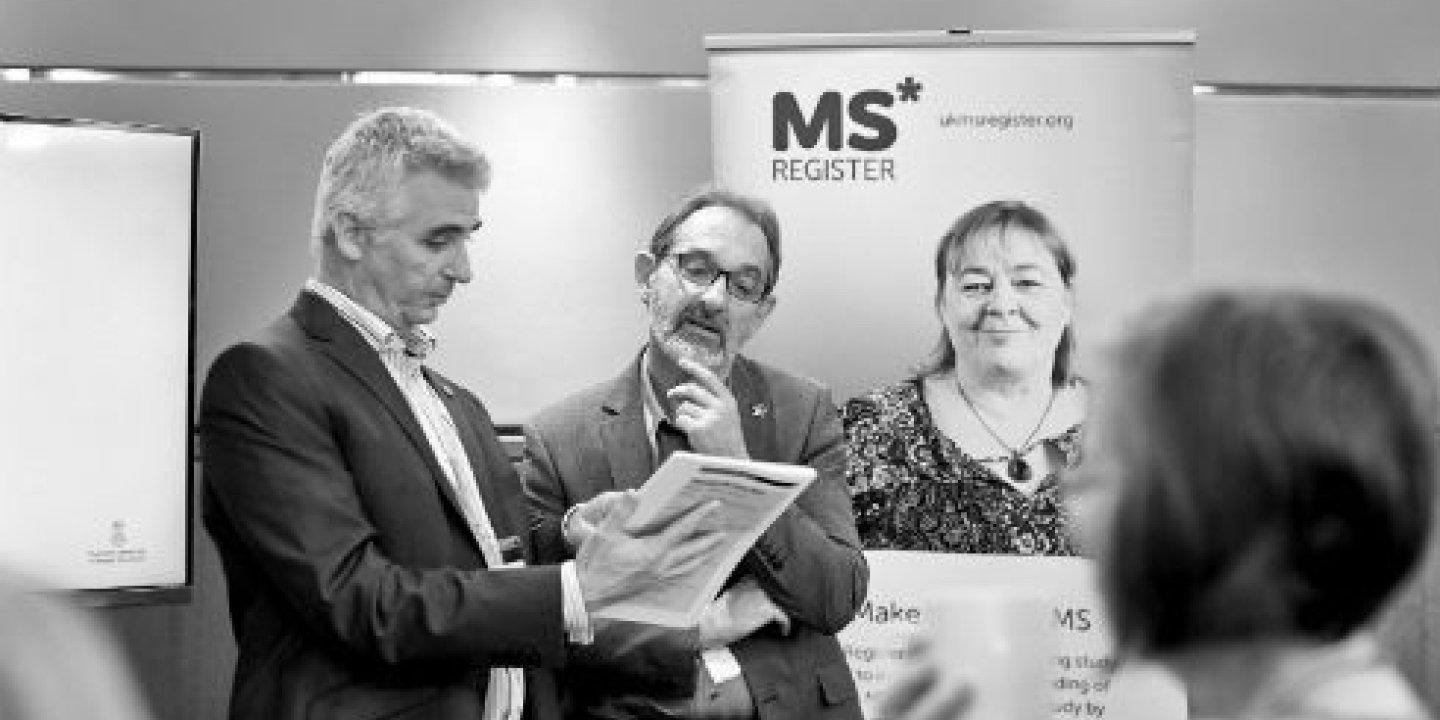
MS Register reveals new insights
The UK MS Register is the world’s first online database to combine information from people with MS about their condition with NHS data. This year, research using the Register helped us learn new things about MS.
For example, UK scientists showed new information that depression may be a result of more advanced disability, rather than a cause. This shows us the importance of prioritising the mental wellbeing of people with MS. In another study, researchers found that people’s level of disability around the time of diagnosis could be an indicator of how their condition will progress.
When you sign up to the Register, you join a community of over 23,000 members contributing to research like this.
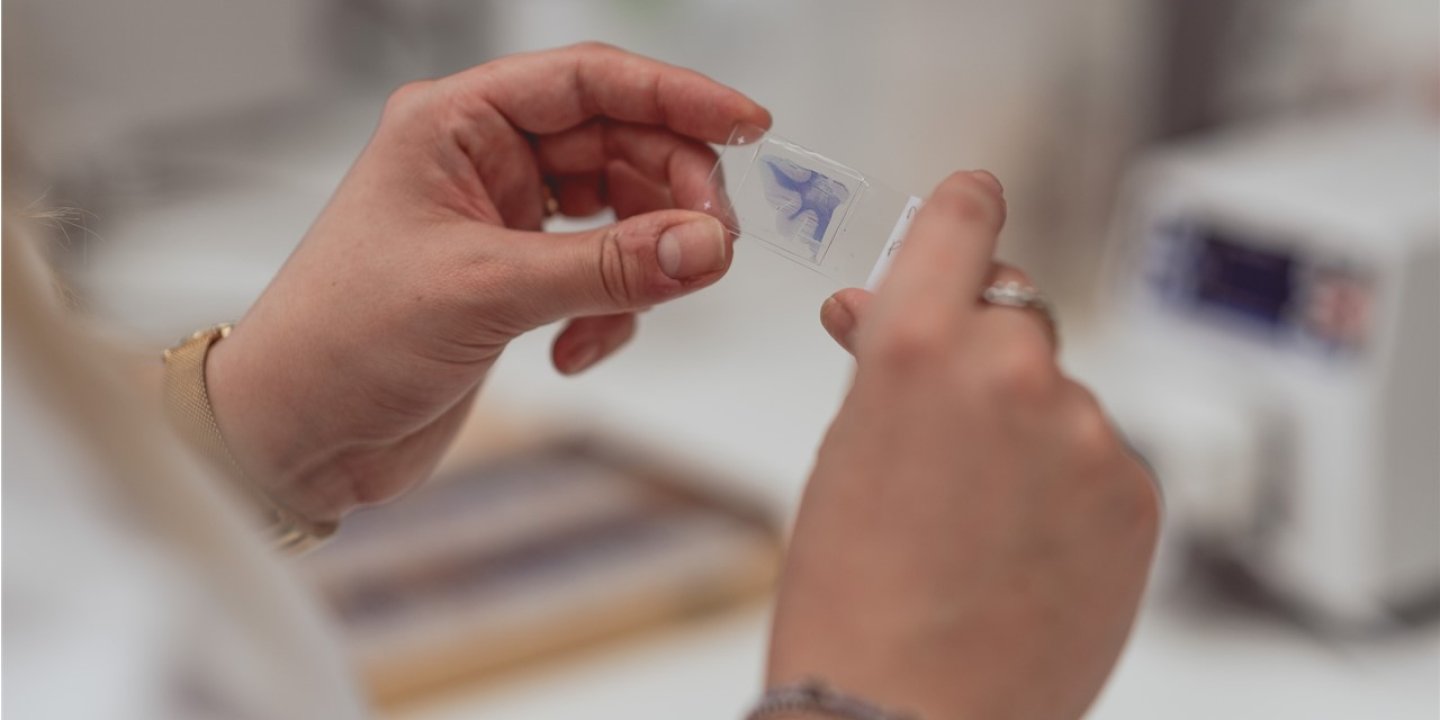
Looking ahead to 2024
We’re proud of everything we’ve achieved this year in MS research, with your support. In 2024 keep an eye on our news page, where we’ll be sharing the new research projects with the potential to make discoveries to help everyone with MS.

